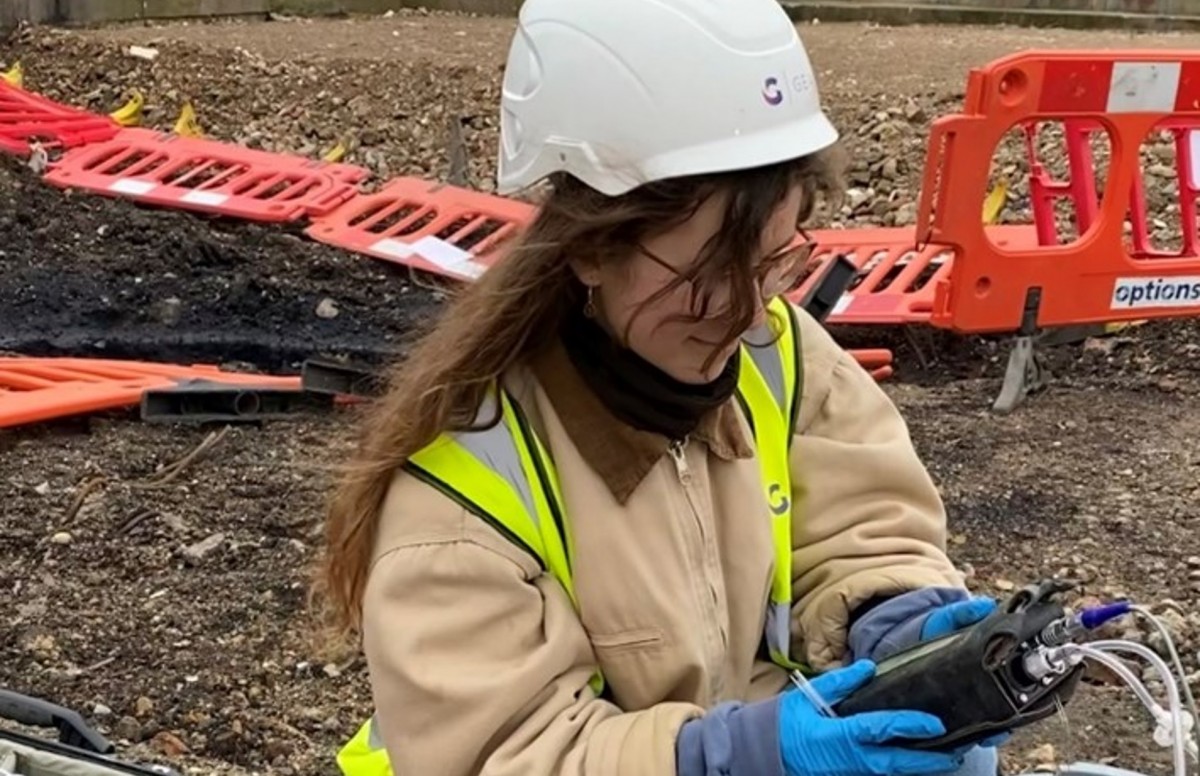Little Known Questions About Geotheta.
Little Known Questions About Geotheta.
Blog Article
The Facts About Geotheta Uncovered
Table of ContentsHow Geotheta can Save You Time, Stress, and Money.Not known Facts About GeothetaWhat Does Geotheta Mean?Getting The Geotheta To WorkMore About Geotheta

They perform site investigations, gather samples, perform laboratory tests, and assess information to examine the viability of the ground for construction jobs - Tailings Engineer. Based upon their searchings for, geotechnical designers provide recommendations for foundation style, slope security, maintaining frameworks, and reduction of geotechnical threats. They team up with various other specialists, such as architects, architectural designers, and building and construction groups, to ensure that geotechnical considerations are incorporated right into the total job style and implementation
By assessing the habits and properties of dirt and rock, they can identify potential geotechnical threats such as landslides, dirt negotiation, or slope instability. Their proficiency assists avoid failures or accidents that could jeopardize lives and property. Below are some thorough tasks and obligations of a geotechnical engineer: Website Examination: Geotechnical designers conduct site examinations to collect data on subsurface conditions.
They interpret the information to understand the residential properties and behavior of the dirt and rock, including their stamina, permeability, compaction qualities, and groundwater problems. Geotechnical Evaluation and Design: Geotechnical engineers assess the information accumulated during website examinations to analyze the stability and viability of the website for building and construction jobs. They carry out geotechnical computations and modeling to evaluate factors such as bearing capability, settlement, incline security, lateral planet pressures, and groundwater flow.
What Does Geotheta Do?
Foundation Style: Geotechnical engineers play a crucial function in creating foundations that can securely sustain the desired framework. They analyze the soil conditions and lots requirements to identify the suitable structure type, such as shallow foundations (e.g., footings), deep structures (e.g (https://geotheta.bandcamp.com/album/geotheta)., piles), or specialized strategies like soil enhancement. They consider elements such as negotiation limitations, birthing capability, and soil-structure interaction to develop optimal structure designs
They review building plans, display site tasks, and carry out field inspections to validate that the style recommendations are adhered to. If unanticipated geotechnical issues arise, they analyze the circumstance and provide recommendations for removal or adjustments to the layout. Danger Evaluation and Reduction: Geotechnical designers examine geotechnical hazards and threats related to the project website, such as landslides, liquefaction, or soil disintegration.

Cooperation and Communication: Geotechnical designers function closely with various other specialists included in a project, such as engineers, structural designers, and construction groups. Efficient interaction and partnership are important to integrate geotechnical considerations into the total task style and building process. Geotechnical engineers offer technological experience, solution questions, and ensure that geotechnical demands are fulfilled.
A Biased View of Geotheta
Right here are some sorts of geotechnical engineers: Foundation Designer: Structure engineers concentrate on designing and examining foundations for structures. They analyze the dirt problems, load requirements, and site qualities to figure out one of the most ideal foundation type and layout, such as shallow structures, deep foundations, or specialized techniques like pile structures.
They examine the elements influencing slope stability, such as dirt homes, groundwater conditions, and slope geometry, and create approaches to stop slope failings and minimize threats. Quake Designer: Earthquake engineers specialize in evaluating and developing structures to endure seismic forces. They examine the seismic threat of a website, examine soil liquefaction potential, and develop seismic layout standards to guarantee the safety and security and resilience of frameworks throughout quakes.
They perform area screening, gather samples, and assess the collected information to define the dirt homes, geologic developments, and groundwater conditions at a website. Geotechnical Instrumentation Designer: Geotechnical instrumentation designers concentrate on monitoring and gauging the habits of soil, rock, and frameworks. They set up and maintain instrumentation systems that check aspects such as soil negotiation, groundwater degrees, incline movements, and structural variations to examine performance and supply early cautions of prospective concerns.
The Buzz on Geotheta
They perform tests such as triaxial examinations, debt consolidation examinations, direct shear tests, and permeability examinations to collect information for geotechnical analysis and design. Geosynthetics Designer: Geosynthetics designers focus on the layout and application of geosynthetic products, such as geotextiles, geogrids, and geomembranes. They use these materials to enhance dirt security, reinforce slopes, supply drain remedies, and control disintegration.
They tend to be investigative people, which implies they're intellectual, introspective, and analytical. They are interested, methodical, logical, analytical, and rational. A few of them are additionally social, meaning they're kind, generous, cooperative, patient, caring, useful, compassionate, tactful, and pleasant. Does this audio like you? Take our free occupation test to learn if geotechnical designer is one of your leading job suits.
In the workplace atmosphere, geotechnical engineers utilize specialized software devices to do calculations, create layouts, and examine data. They prepare reports, review project requirements, communicate with customers and employee, and coordinate project tasks. The workplace setup supplies a favorable atmosphere for research, evaluation, and cooperation with other specialists involved in the project.
The Buzz on Geotheta
They often visit project websites to conduct site examinations, evaluate geotechnical problems, and gather information for evaluation. These visits include traveling to various locations, occasionally in remote or tough surfaces. Geotechnical engineers might execute dirt tasting, conduct tests, and screen building tasks to ensure that the geotechnical elements of the job are being carried out correctly.
Geotechnical engineers also work in specialized geotechnical research laboratories. In these facilities, they carry out experiments, perform tests on dirt and rock examples, and examine the engineering residential or commercial properties of the materials. Geotechnical lab engineers work extensively in these environments, handling testing tools, running tools, and taping information. They team up with various other laboratory team to make certain exact and dependable screening outcomes.
Report this page